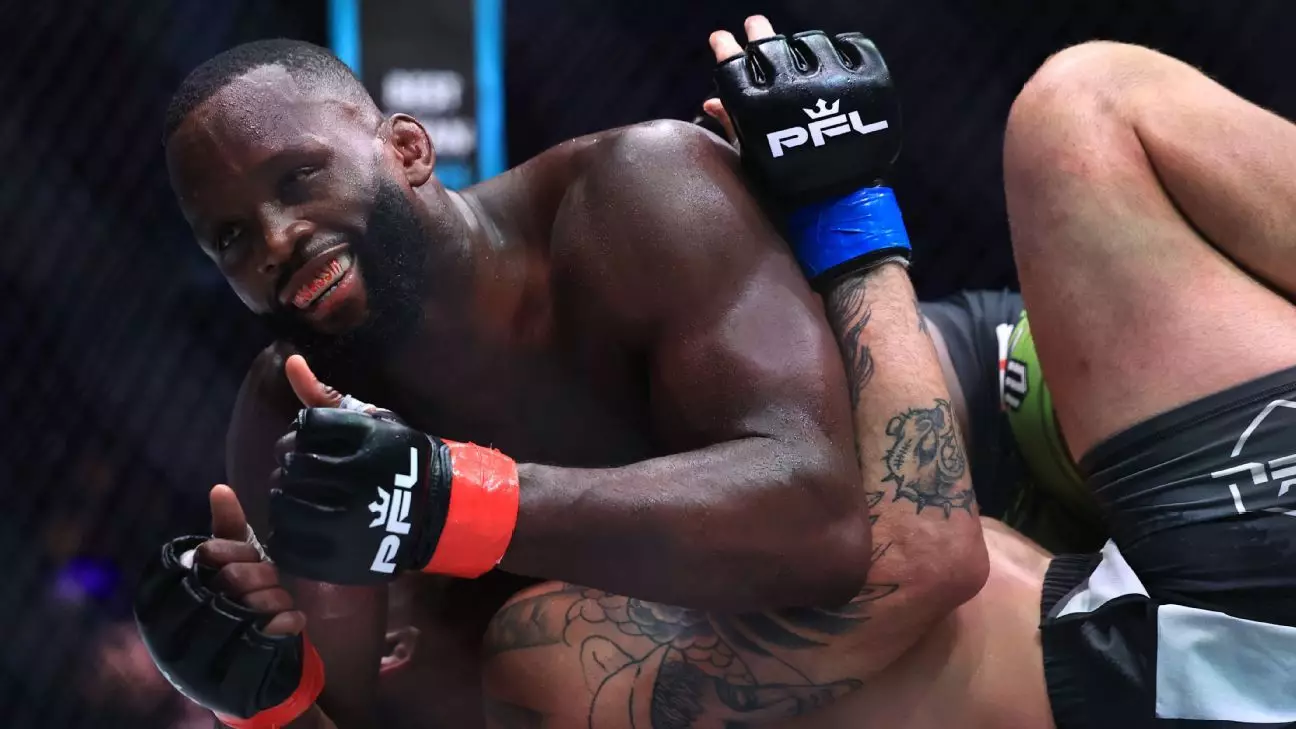The 2025 Professional Fighters League (PFL) finale in Hollywood is far more than a mere culmination of an MMA season; it is a battlefield where emerging talents collide with seasoned warriors, forging the future narrative of professional MMA. This event exemplifies how the sport continues to evolve by blending seasoned experience with fresh dynamism, making it an intoxicating spectacle for fans and critics alike. The significance extends beyond the fighters’ immediate stakes—these bouts act as a crucible for defining the contours of MMA’s evolution over the coming years.
Notably, this event isn’t solely about crowning winners but also about elevating fighters into the higher echelons of the sport. Each bout embodies a battle of narratives—veterans fighting to cement their legacy, and younger athletes eager to etch their names in the history books. Such a convergence underscores the sport’s transitional nature, where experience and raw talent vie for supremacy, emphasizing why this event is an inflection point for MMA’s future.
The Clash of the Titans: Edwards and Rosta Take Center Stage
The main event, featuring Fabian Edwards and Dalton Rosta, encapsulates this theme of transition. Edwards, a former Bellator title challenger, possesses a wealth of championship experience—albeit with mixed success—yet remains a fighter capable of adapting and overcoming adversity. Rosta, on the other hand, represents the burgeoning wave of fighters who have yet to taste the highs of title glory but carry relentless determination. His undefeated record, marred only once by a decision loss to Aaron Jeffery, signifies a fighter on the ascent, possessing both skill and hunger.
Critically, Edwards’s previous title challenges have exposed vulnerabilities, especially against opponents with a well-rounded game like Johnny Eblen, Rosta’s trainer and a formidable champion. Rosta’s recent qualitative improvements—highlighted by strategic victories—could represent a pivotal shift in the sport’s competitive landscape. His confidence—evident in his fiery rhetoric—and his undefeated streak put pressure on Edwards to prove that experience still trumps fresh aggression. Fans and analysts should watch how Rosta leverages his gym knowledge of Eblen’s game to expose Edwards’s weaknesses; a victory for Rosta could be a sign that youth and relentless drive are beginning to eclipse established name recognition.
Romanov and Popov: A Clash of Power and Experience
On another front, the heavyweight and light heavyweight finals are set to showcase two contrasting styles and experiences. Alexander Romanov, known for his relentless grappling, is an executioner with an impressive tally of finishes—16 in 40 wins—displaying his preference for ground dominance. Oleg Popov, meanwhile, combines endurance and striking resilience, having fought through a grueling semifinal that saw him go the distance. His past experience, including a season-ending loss in last year’s final, brings a sense of impending redemption.
Romanov’s statement about feeling the pressure of takedowns and his grappling prowess underscores his intimidating ground game. Popov’s bold stance on striking and his recent knockout victories signal a potential for fireworks—if he can keep the fight standing. The real intrigue lies in whether these two grappling-minded fighters will attempt to nullify each other’s strengths or engage in a brutal stand-up slugfest. Popov’s mentorship under the legendary Fedor Emelianenko adds another layer of narrative—symbolic of a passing of torch, or perhaps the rekindling of a heavyweight dynasty.
Dissecting the Middleweight and Light Heavyweight Finalists
Fabian Edwards’s journey highlights a story of perseverance. After two losses in title bouts, his recent victories show growth and resolve. His mindset—grounded in previous failures—positions him as a fighter who has learned from past mistakes. Rosta, by contrast, epitomizes raw potential and unrefined energy that could turn into chaos if given the chance. The psychological battlefield here is as pivotal as the physical one; Edwards aims to leverage his championship experience, while Rosta seeks to tip the scales with youthful ferocity.
Similarly, Sullivan Cauley and Antonio Carlos Jr. are emblematic of contrasting MMA philosophies. Cauley’s self-professed proficiency in boxing and his wrestling background suggest a strategy oriented toward standing exchanges and positional control. Carlos’s background in jiu-jitsu and submission skills point towards a fight that could quickly turn to grappling—a chess match of attrition and technical mastery. The outcome hinges less on skill alone and more on their ability to impose their game plans under the tremendous pressure of a defining fight.
The Broader Implications for MMA’s Future Trajectory
This final set of fights signifies more than titles—they are harbingers of the shifts in MMA’s landscape. The presence of fighters like Rosta and Popov indicates that new blood is ready to challenge the old guard, and the outcomes could reset the hierarchy. Victory for Rosta, Romanov, or any of the underdogs would send a ripple through the sport, spotlighting the importance of grit, strategy, and adaptability.
What’s


Leave a Reply